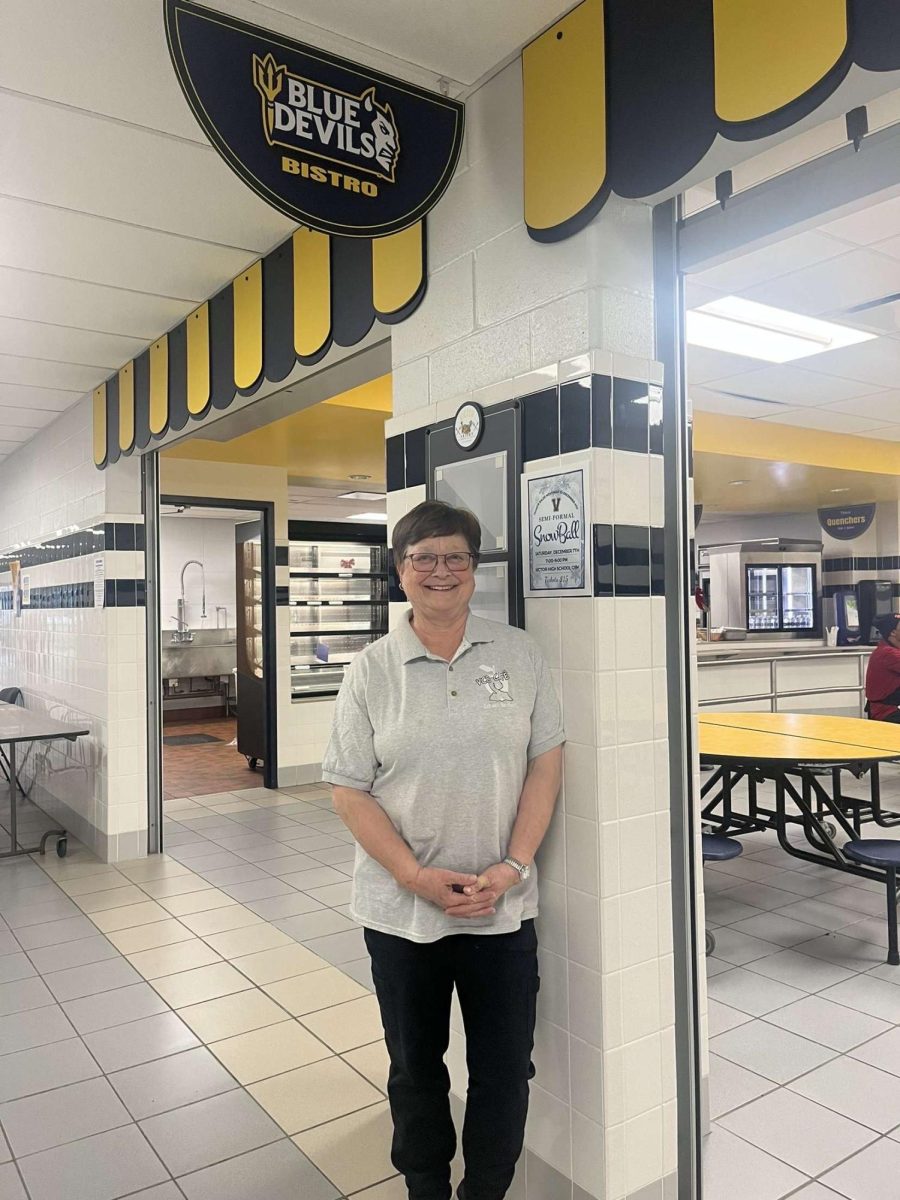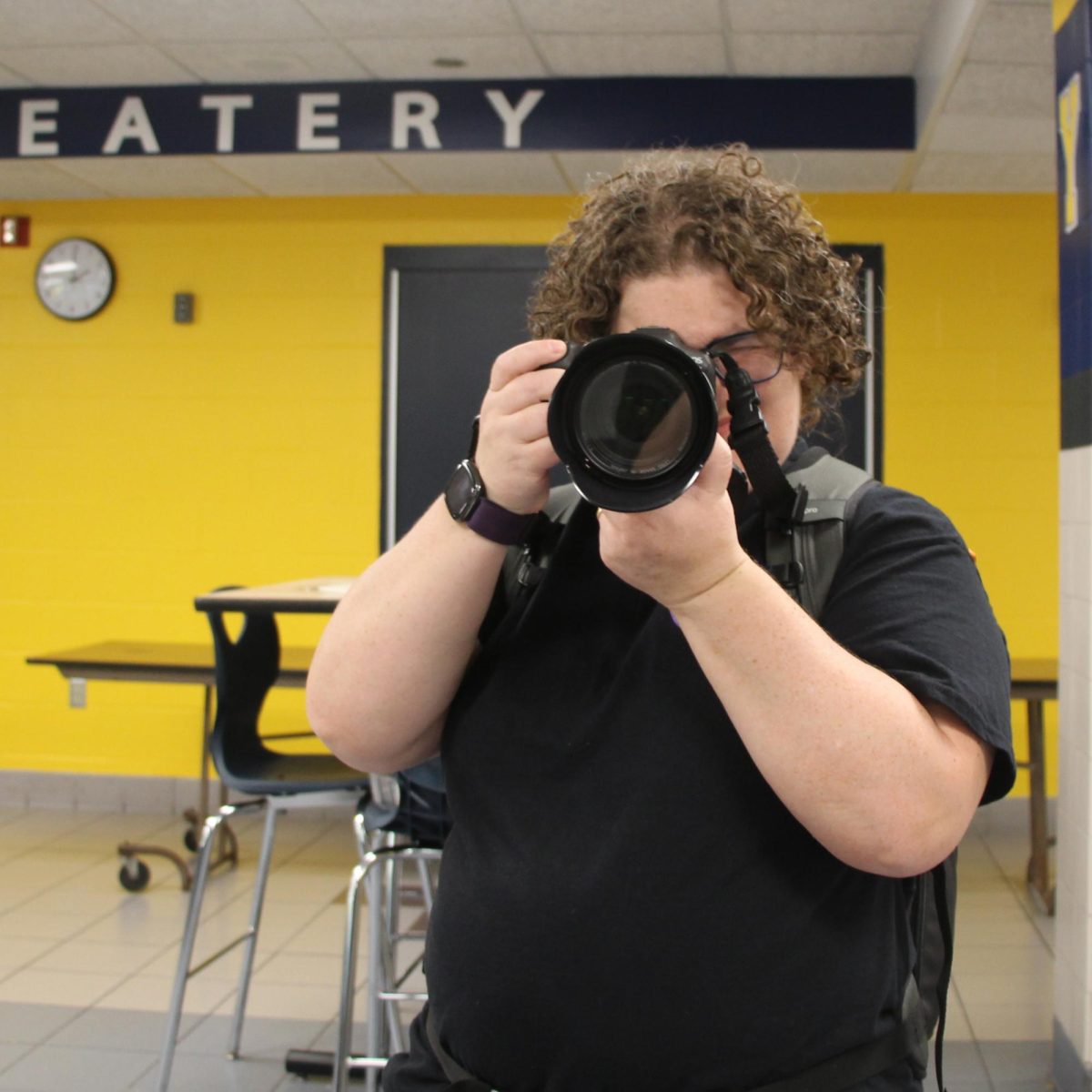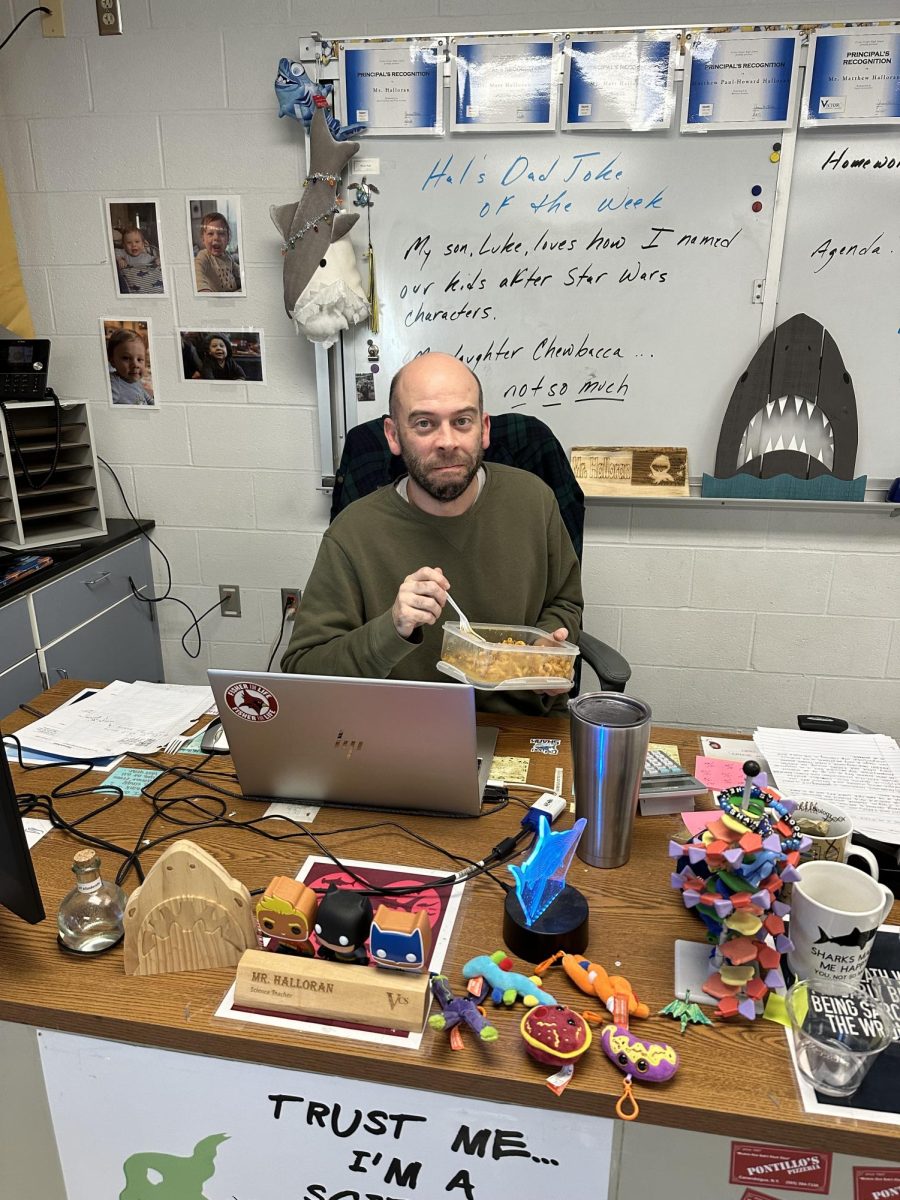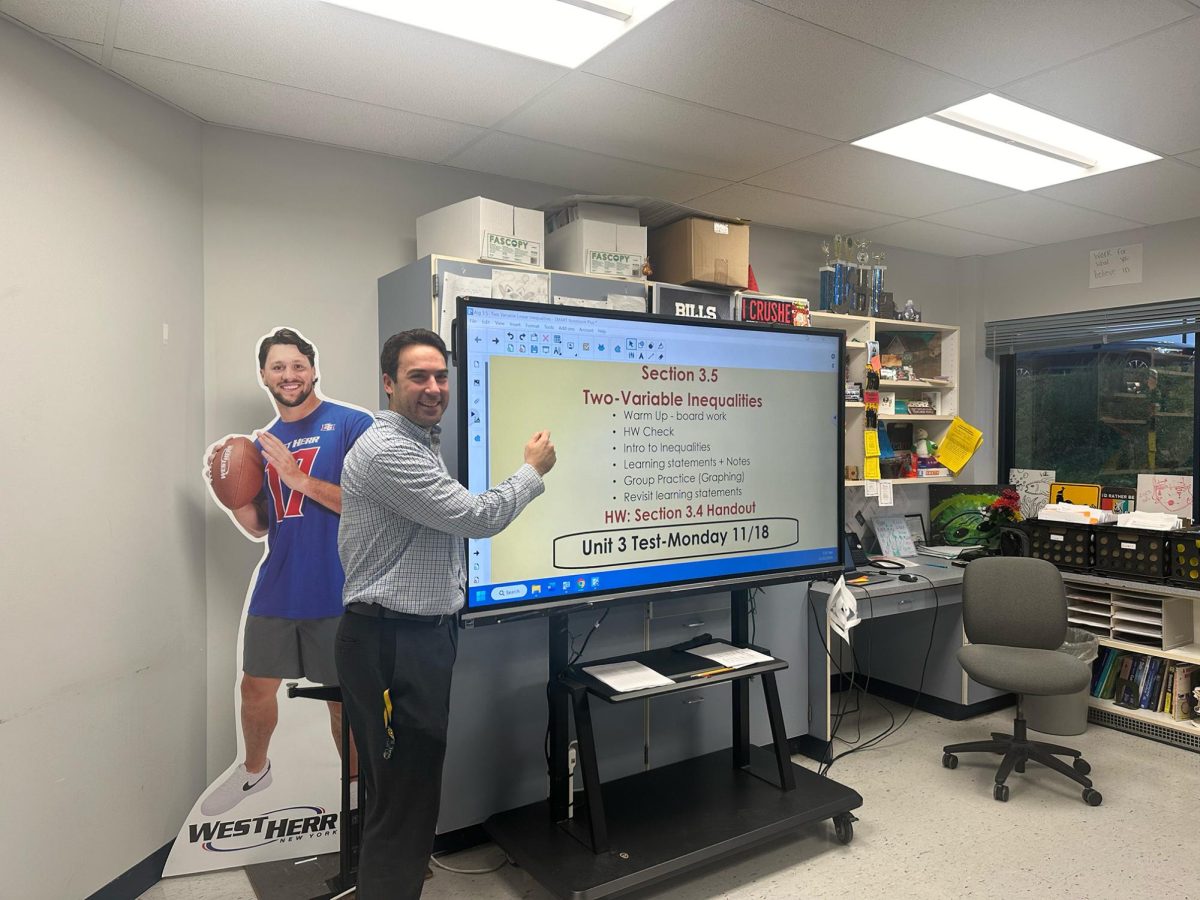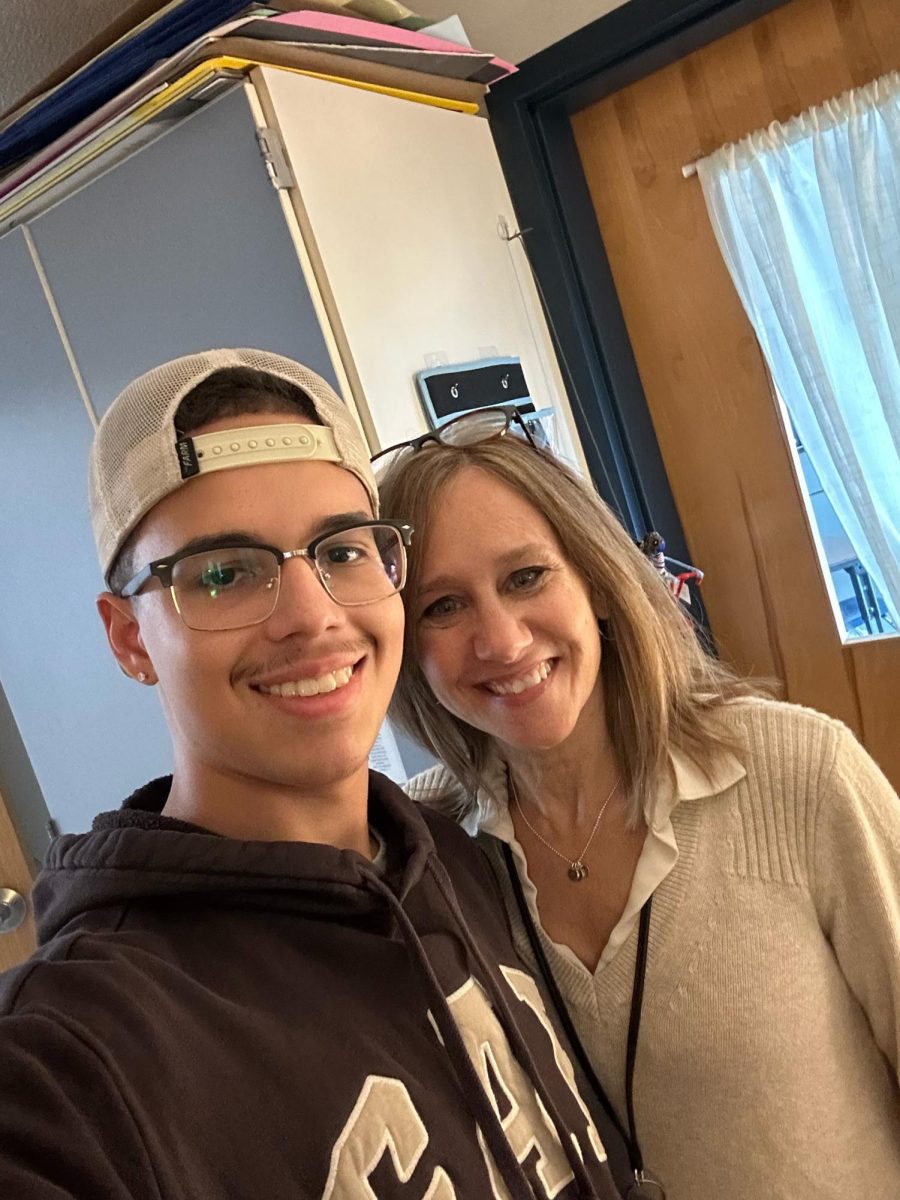From the very beginning, America emphasized unity and collective problem-solving over division. However, in recent years, there’s been a noticeable shift in how people engage with opposing ideas, with conversations often resembling rivalries rather than meaningful exchanges. Since the onset of COVID-19, the political landscape in the United States has shifted dramatically. Events like the attack on the Capitol in January 2021 highlighted a growing strain between political parties, which in the end, is fueled by resentment and a pervasive “us versus them” mentality.
At Victor High School, Austin Donroe, a former coach of the girls and boys outdoor track, and Global 10 and Psychology teacher. In his years teaching at the district. Mr Donroe’s work can reconnect students with the value of dialogue, critical thinking, and collaboration.
in my discussion with Donroe, he reflected on how challenging it can be to keep students engaged with complex subjects. He observed that many people are unwilling to find common ground, entrenched in their beliefs, and that students often feel incredibly disengaged from politics, describing debates as “boring” or lacking the entertaining arguments they expect. Recognizing this disconnect, Donroe has been able to introduce hands-on strategies to help further engage his students. Rather than lecturing about the French Revolution, his class participates in a simulation where students can take the role as if they were the ones experiencing the events firsthand.
“ It makes the material more meaningful and helps students connect with it on a deeper level,” he stated.
Beyond the historical simulations, Donroe Adapts lessons to fit his students’ interests by incorporating current events and social media trends.
“I know writing a paragraph might make some students check out, but if it’s framed as a caption or social media post, they’re most likely to engage. There’s more buy-in when the format feels familiar”
He emphasized the importance of making learning relevant by focusing on real-world issues. He mentioned that both this year and last he had chosen to focus on current events to help illustrate a bigger picture and more modern common sense of the conflicts discussed in lessons.
”When students can see how these tiny things affect their lives, the conversations become more meaningful.” he noted. His goal is not to just teach the facts, but it’s instead to help aid his students to develop the skills that can provide critical analysis skills necessary for navigating today’s fast-paced digital landscape, where having your own well-informed opinion can attract both negative and positive attention.
Donroe’s teaching style focuses heavily on creating a space for students of Victor to explore different viewpoints. He believes that empathy and communication are essential not just in education but useful for our later steps in life. This philosophy extends to his classroom, where Donroe encourages students to approach disagreements with an open mind. He uses discussions and activities to help blur the line between theory and practice, helping students think critically about issues beyond their teacher-assigned work.
When I initially asked Donroe’s perspective on our current election run, he noted a positive change during the recent vice-presidential debate between Waltz and Vance, where both candidates acknowledged shared challenges. He reflected on how students found it refreshing to hear agreement on key issues like immigration, abortion rights, and gun rights, even if the candidates proposed different solutions. This type of dialogue, Donroe argued, is essential for a healthy democracy. He pointed out how political discussions today often resemble sports rivalries, with supporters backing their “teams” without considering the broader consequences.
“At the end of the day, whoever I vote for, if the other person wins, they’re still going to be the leader, I’m hoping they’ll make laws that the majority of people are fine with. But it’s tough when politics become like a team. Whether team, Bills or Patriots, we’re both football fans, so let’s not get at each other’s throats about everything!”
Mr Donroe’s teaching highlights the importance of better communication, empathy, and willingness to learn. Through fun simulations and very captivating discussions on current events, including those unfolding on social media platforms, he encourages the students of Victor to really open an ear and navigate the complexities of online discourse and real-world debates. When we view the current gap of emotions everyone is illustrating in our country right now, the spirit to teach teens to confidently open up and equip the skill to listen respectfully, could be essential to the topic of creating a unified community rather than a divided one.
“We all want to be part of something bigger,” he said “ And the only way to get there is by working together and listening to one another.”



